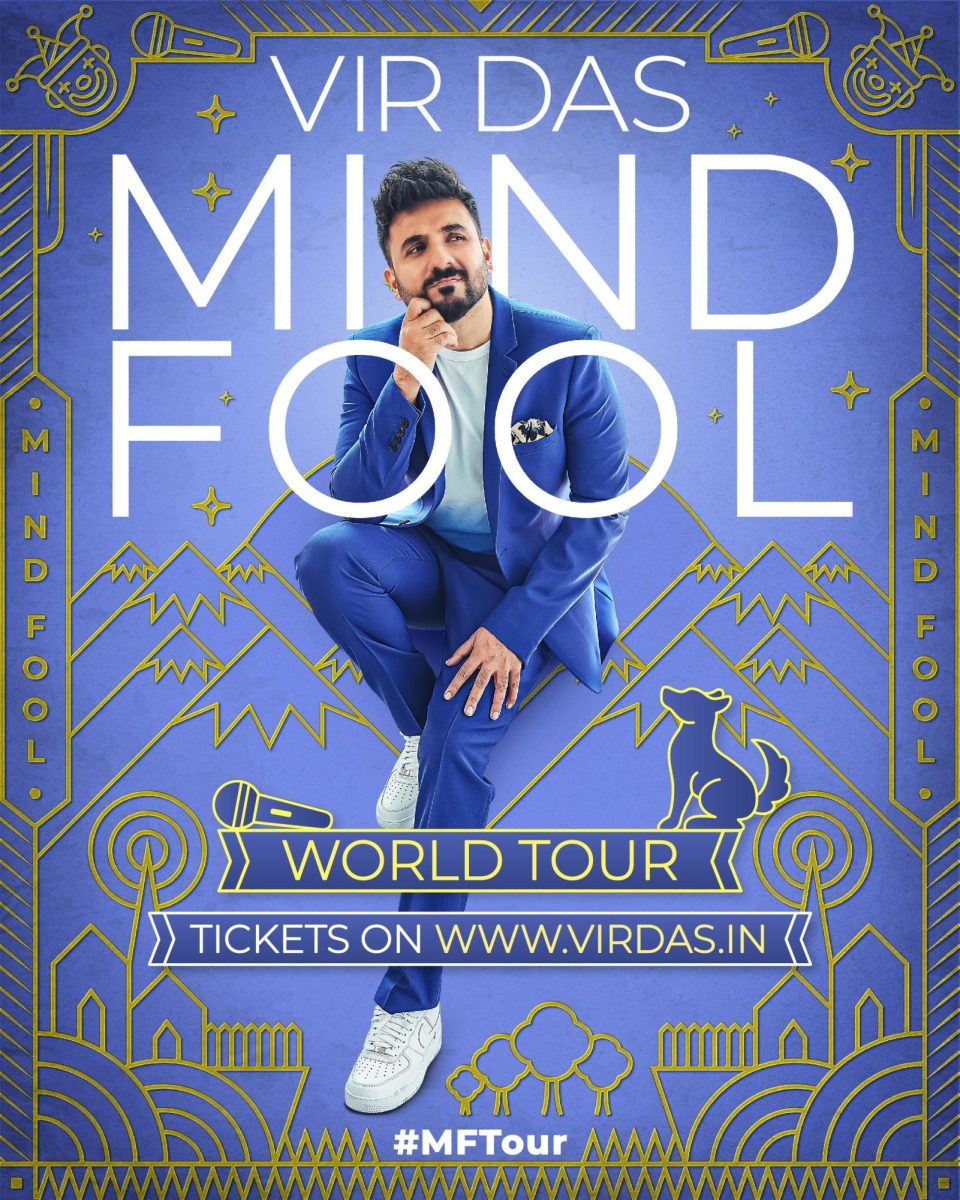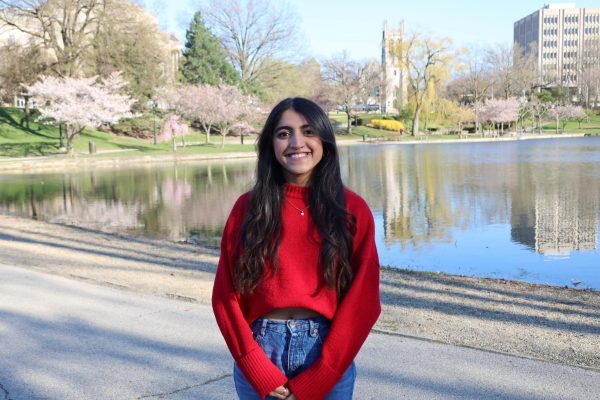As we near the end of the semester—with exams and assignments piling up like never before—I think every Case Western Reserve University student could use a good laugh. On Nov. 12, Indian comedian, producer and actor Vir Das will bring his “Mind Fool Tour” to the Agora Theatre and Ballroom, hoping to share his unique stand-up with Cleveland. This tour comes after the release of his fourth Netflix comedy special, “Landing,” which has received acclaim from global entertainment markets and fans and critics alike. In addition to his specials, Das has created, produced and starred in several series, including ABC’s spy drama-comedy “Whiskey Cavalier” and Netflix’s thriller “Hasmukh.” More recently, Das has been working with Fox, CBS Studios and Andy Samberg’s production company Party Over Here to produce his own single-camera comedy. In this interview with Das, we learned even more about his creative process, current projects and rise to comedic fame.
This interview has been edited for clarity and brevity.
Shivangi Nanda: How did you discover your passion for comedy? What inspired you to pursue it professionally?
Vir Das: I was in drama school and I just got tired of doing Shakespeare all day. I completed a bachelor’s degree in theater and it was four pretty intense years of doing about 30 plays. Afterwards, I think I just needed something that was a little more organic. I found stand-up in my final year of college, so it’s more like rebellion than anything else.
SN: Can you tell me a memorable experience from your early days in stand up that shaped or changed the way you produce comedy?
VD: The first time I did stand up was in college. I did it for about 600 people, in about 60 minutes, and it was just me telling stories about my friends to my friends. When I finally tried it professionally, I was doing five minute segments to 10 people and getting booed off stage—it was not going very well for me on the south side of Chicago.
I think the lesson that you learn with stand-up is that being the popular kid, or telling inside jokes or stories to people who think you’re cool, does not make you a good comedian. Oftentimes, being the one who gets booed off stage or being the loser in the corner, that’s what makes you pick it up. It takes you a while to learn that.
SN: Comedy often involves addressing social issues. How do you navigate that fine line between humor and cultural sensitivity?
VD: Well, one could argue that I navigate it quite badly. But I think you aren’t consciously deciding to talk about certain things in the world with any agenda. You’re just trying to see what’s ridiculous and what’s funny and then put that on the page. I also think that as you get a little bit older, who you are falls onto the page a little bit more, and who you are happens to involve what you think about the world.
SN: Your comedy often delves into cultural and global themes. How do you tailor your material for different audiences?
VD: I think what has happened with the Netflixes and the Amazons of the world is that people are now looking to be surprised. They are not looking to hear about the five things they already know, they’re looking to hear 35 things that they never knew about. So, I don’t think you have to. I think it’s becoming more important to tell an authentic story, and oftentimes, an alien story so people can leave your show saying, “Oh man, I learned something today!”
SN: You recently received your second International Emmy nomination. Do you want to tell me a little bit about that?
VD: I don’t think much of it. I went two years ago, put on the pants and suit, but I didn’t get the award. I did, however, get a Greek salad. So all I’m thinking about now is going back and eating another salad. So, if I come back it’ll be with fiber and an award or just fiber.
SN: From your experience, what advice would you give to aspiring stand-up comedians looking to make their mark on the industry?
VD: Two pieces of advice. One, if you can do anything else and be happy, for God’s sake do that. Two, if you’re going to do this, just to make sure that you know that anybody can be funny and anybody can make people laugh for a certain amount of time. But can you be the one to put your personality and heart into it? Can the audience member walk away saying, “Oh, I know something about who that person is, not just their jokes”?
SN: What is unique about your form of stand-up comedy? How do you put that flair into your specials?
VD: I think most people have never heard an authentic Indian perspective like mine. I’ve been fortunate enough to grow up around the world and see a fair chunk of it. So, when you come to one of my shows, you will experience the entire world and every continent. I think that’s something I can do that not a lot of other comics can.
SN: What can audiences look forward to with your world tour?
VD: The show is called “Mind Food” because it’s about being an idiot, and it’s about not knowing how to be an adult. I think most adults are just children who are pretending to have their stuff together. And this is a show that kind of harks back to the idiot in all of us.
SN: Can you tell me a little bit about the process of filming your specials and how they’ve contributed to your journey overall?
VD: The special really just serves as two things. It serves as an advertisement for the tour that’s going to happen after the special, and also serves to brand the type of comedy that I do. I think it’s a very democratic thing to have stand-up comedy specials, because they sit on Netflix right next to the big-budget Hollywood action movies or dramas. I could never visualize a world in which I would have the same size poster as I don’t know, Jennifer Lawrence. So now I’m no longer competing for your attention. I’m just competing for your time and for you to click on my face. That’s what the stand-up special really does. It democratically puts your art out there.
SN: Tell me one fun fact about you.
VD: Ok, I’m a minimalist. I own five T-shirts, two pairs of pants and some workout clothes. I have managed to travel the entire world without checking-in luggage and that’s my policy.
Still early in his career, Das has become a comedy sensation, proving that honest, grounded content makes for the best stand-up. He embodies the struggle of a rising star, and acknowledges the need to break social barriers and take risks with the media you put out. If you wish to take a break from the books, be sure to get tickets for his live show at The Agora. I know I will be there!




